
B.C. has a new policy for staking mining claims. Why doesn’t anyone like it?
B.C. previously allowed mineral claims without First Nations consultation. It was court-ordered to fulfill its...
After a campaign with few surprises where candidates largely avoided discussing the environment, Doug Ford’s Progressive Conservatives won the 2022 Ontario election with a majority Thursday.
The result is a Progressive Conservative government that won fewer votes but managed to secure more seats than it did in 2018 — and a seemingly rudderless opposition. Though final seat counts weren’t available by publication time, a diminished NDP saw the resignation of their longtime leader, Andrea Horwath. The Liberals, too, saw leader Steven Del Duca step down after they failed to achieve the comeback they had hoped for.
Speaking to a raucous crowd who chanted, “Ford more years,” the re-elected premier beamed standing alongside his wife, Karla during his victory speech.
“This proves our approach is the right one,” Ford said, reiterating his commitments to invest in new highway projects — including two running through Ontario’s Greenbelt — and seek the minerals needed for electric vehicles in Ontario’s Far North. The province is “blessed” with natural resources, he said.
“We’re building that road to the Ring of Fire,” he said. “We have the critical minerals the whole world is after.”
Even though a deadly derecho storm — a type of extreme weather event expected to become more common due to the climate crisis — swept through southern Ontario mid-election, the race focused far more on affordability than the environment. Which might be a preview of the next four years too, given the Ford government’s environmental track record.
It wouldn’t be the first time concerns around high costs crowded out the question of how to lower emissions and conserve the environment, said Andrea Olive, an associate professor of political science and geography at the University of Toronto Mississauga, whose work focuses on biodiversity.
“Inflation is crazy and people are worried,” she said. And when things get expensive, people tend to be focused on short-term needs like the cost of food and lose sight of long-term ones, even though there’s an economic argument to be made for strong environmental policy. “When the economy is bad, it’s bad for the environment. People feel like they can’t afford to care about it.”
Meanwhile, the election results will also leave Ontario’s two main opposition parties, the Liberals and the NDP, in a state of uncertainty. NDP leader Andrea Horwath led her party to its second round as the official opposition — in the face of pushback within her caucus — she stepped down Thursday night, saying it was time for her to pass the reins to someone else. So did Liberal Leader Steven Del Duca, who failed to secure a seat in the legislature, or a significant number of new seats anywhere else.
Both parties have historically pushed for more action on the environment than the Progressive Conservatives, but leadership crises will almost certainly make it harder for them to keep doing so in the short term.
All that chaos doesn’t mean nothing is going to happen on the environment front: during the campaign, the parties all agreed that a push for more electric vehicles, for example, was a good idea. And although they differed on how they want to reduce emissions and by how much, all say they’re planning to do it.
Ontario Green Party leader Mike Schreiner, who held his seat, issued a plea Thursday night for the Progressive Conservatives to chart a different course on climate.
“At this critical moment in time I ask you to consider the financial, the economic and the climate implications of paving over the places we love — the farmland that feeds us and the nature that surrounds us,” Schreiner said.
“I say this as a fellow Ontarian. The storms, weather, floods we have experienced during the campaign alone… shows what’s at stake.”
Here’s a breakdown of what it all means, and a few things you can expect during Doug Ford’s second term.
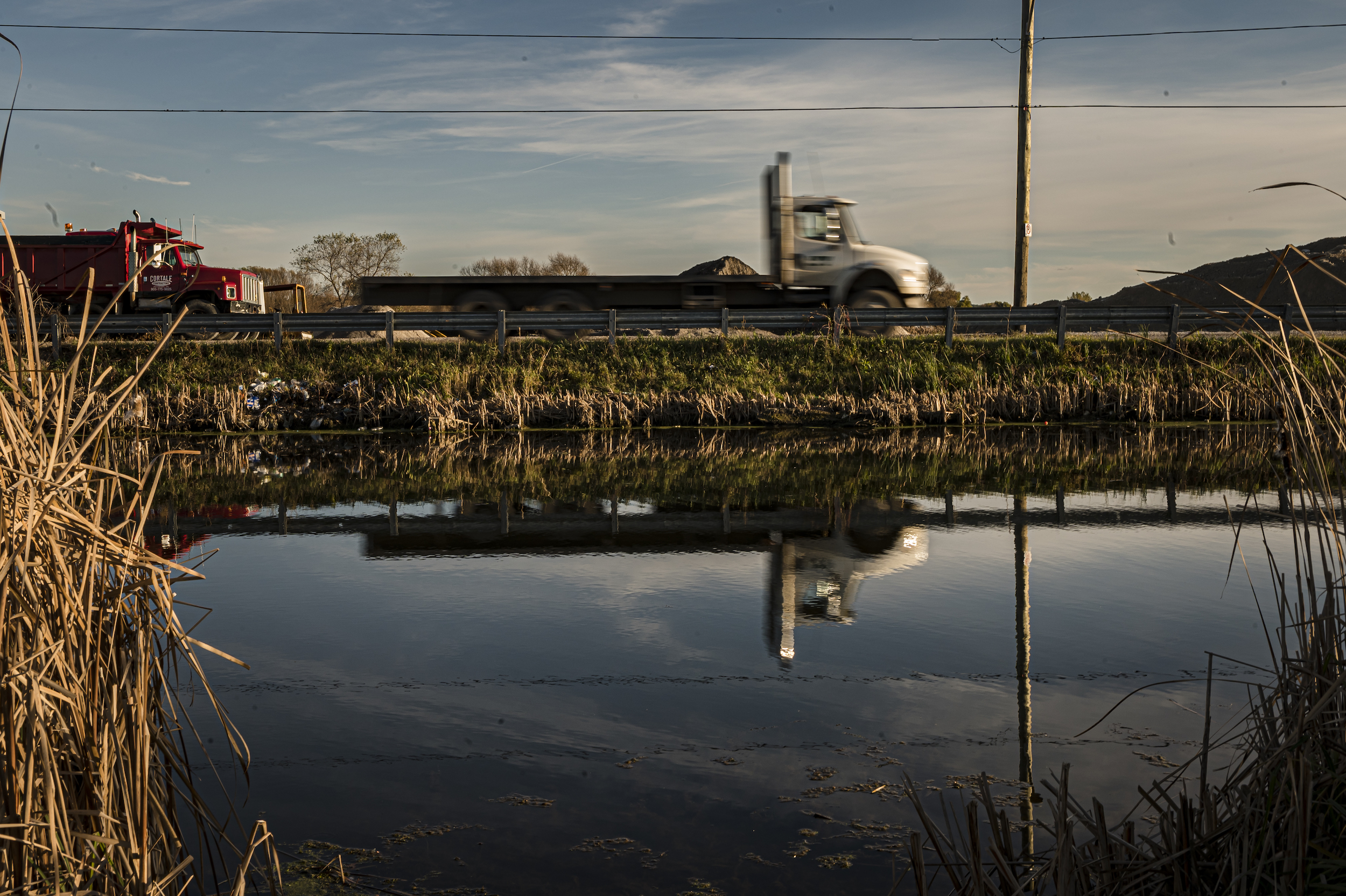
The Tories’ big plans for building new highways through Ontario’s Greenbelt, Highway 413 and the Bradford Bypass, were a hallmark of their first four years in government. They’ve made it clear that they intend to use their second term to get those projects closer to the finish line, although critics have raised concerns about how they could harm protected areas, endangered species habitat and farmland, and also increase greenhouse gas emissions.
For the 413 at least, that might be easier said than done. In 2021, the Government of Canada announced that it would step in and subject the controversial project to the federal impact assessment process, effectively delaying Highway 413 indefinitely. Construction on the Bradford Bypass, however, is set to begin later this year. The federal government has twice declined to intervene on that project.
The Progressive Conservatives have also proposed a myriad of other highway projects, including a twinning project on Highway 17 in Northern Ontario and a widening of Highway 417 in Ottawa.
The Progressive Conservatives ran in 2022 on the least ambitious plan to reduce greenhouse gas emissions of all the mainstream parties in Ontario. They committed to reaching Ontario’s Paris Agreement goal of cutting emissions to 30 per cent below 2005 levels by 2030. The other parties were pushing to do more by 2030 and then aim for net-zero, which isn’t in the Tories’ long-range plans.
So what does Ford’s vision for emissions reduction look like? For starters, it’ll definitely mean no cap-and-trade system — the Tories cut that in 2018 and have replaced it with a far weaker industrial carbon pricing plan. A voluntary clean energy credit program is in the works, but unlikely to be as effective as cap-and-trade.
Instead, the governing party has said it wants to see more emissions reductions by increasing the amount of renewable content in gasoline, putting stricter standards on industry and helping steelmakers use cleaner technology.
It’s not clear whether that’s going to work. The Progressive Conservatives are not on track to deliver the emissions reductions they promised, as the province’s auditor general reported last year, though the Tories have disputed this. They also haven’t delivered key aspects of their climate plan. In a report released in May, the non-profit Environmental Defence found that Ontario will miss its 2030 climate targets under the government’s current policies.
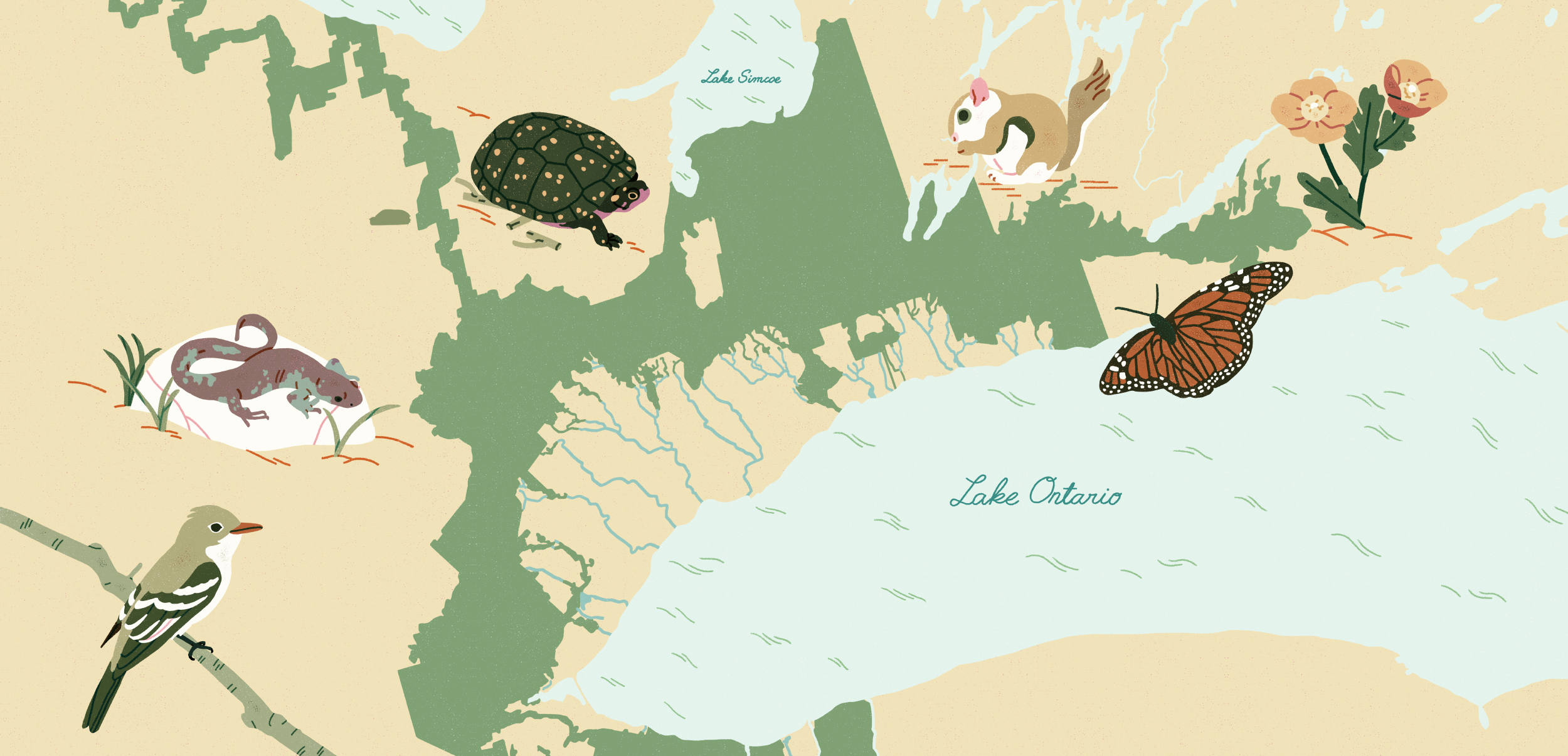
Farmland became a development battleground during the Ford government’s first four years, and that shows no sign of stopping. It started with Ford saying he would open Ontario’s Greenbelt for development, then backing off — twice. He then eventually promised to compensate for fast-tracked projects by adding to the protected area, before releasing a proposed expansion plan that doesn’t add anything major.
Speaking of fast-tracked projects: the Progressive Conservatives have made generous use of an unappealable special land use power called a Minister’s Zoning Order (MZO), which allows them to bypass local planning processes to kickstart development. That’s likely to continue: “We will never stop issuing MZOs,” said Steve Clark, who spent the last four years as Ford’s minister of municipal affairs, in 2021. (The other parties had all proposed various versions of reining in use of the orders, or getting rid of them altogether.)
The Tories’s rewrite of land use planning rules has also led to a series of votes at local councils over whether to open up more farmland for development. The government has said it’s seeking to increase the supply of housing and has pushed cities to expand outward to allow for more detached single-family homes. Environmentalists say that’s a bad idea, since farmland is an important carbon sink and plays a key role in local ecology. All three opposition parties had promised to focus on denser development in areas already set aside for new housing.
The nuclear plant in Pickering, Ont., that provides one-sixth of Ontario’s grid will begin shutting down in 2024, leaving a massive void in the province’s electricity system, which is currently 94 per cent emissions free. The problem is, the Progressive Conservatives’ plan for replacing it relies mostly on natural gas-fired power plants, which it bought more of in 2020. That’s expected to erase a third of the emissions reductions Ontario brought about by phasing out coal.
Renewable energy might have helped with that problem, except the Ford government cancelled over 700 clean energy programs soon after beginning its first term in 2018. More recently, however, Ford’s tune on renewable energy has changed: he said on the campaign trail that he “won’t be happy” until Ontario’s grid is completely clean, though his party didn’t offer a plan to get there.
The Tories have also sought to act on appetite from businesses to secure more clean power. The party is working on a strategy for harnessing hydrogen power and looking at battery storage for renewable energy. The Progressive Conservatives have also set up a panel aimed at energy transition, and are pledging to develop nuclear energy from small modular reactors, which aren’t yet in commercial use anywhere. For now, it’s unclear how much of a dent they might make.
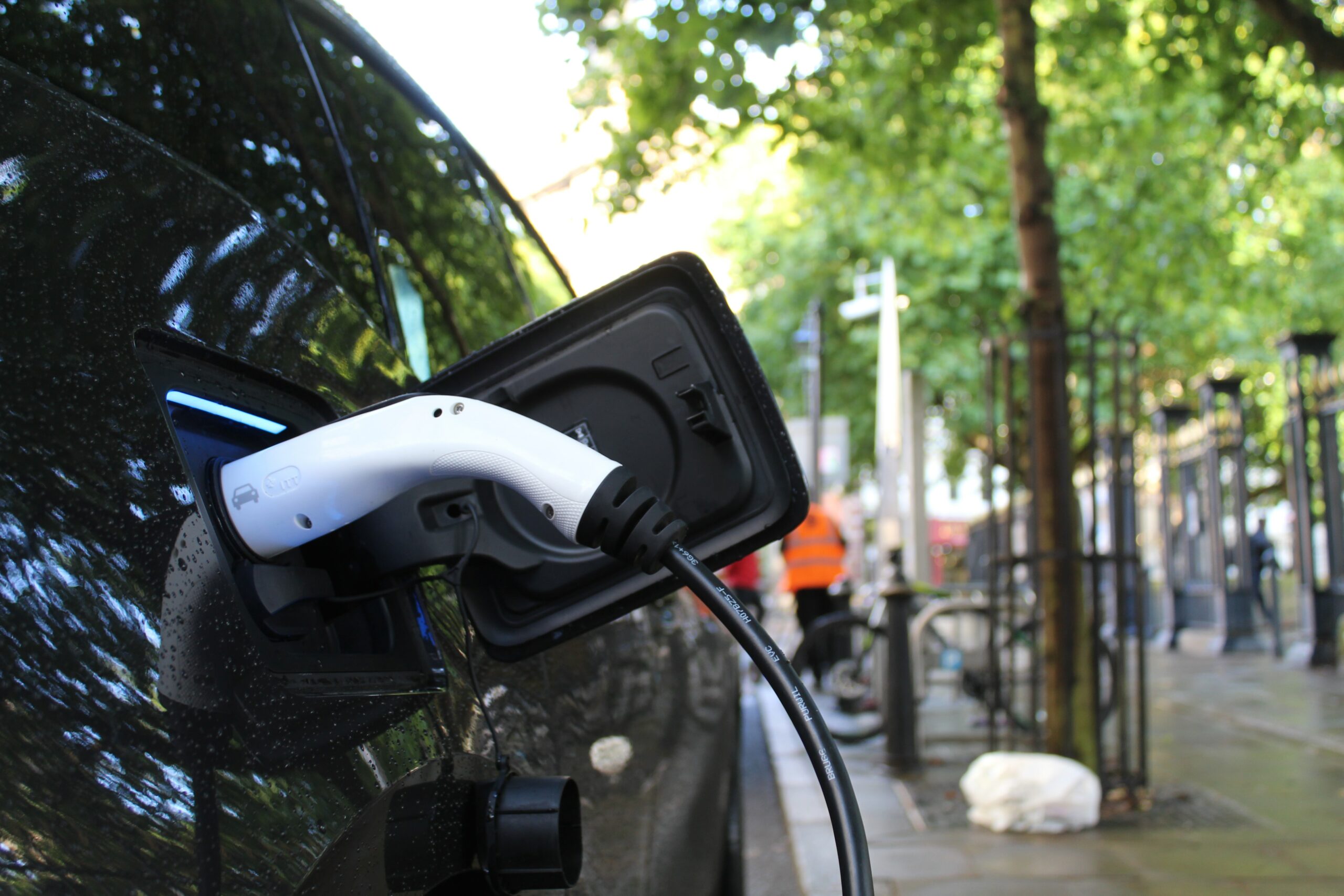
Ford has had a love-hate relationship with electric vehicles over the last four years. In 2018, his government pulled the plug on a program from the previous Liberal government, which provided up to $14,000 for buyers of electric vehicles. Then and since, Ford has maintained that the program only benefitted millionaires.
The Tories also took requirements for electric-vehicle charging stations out of Ontario’s building code and removed some public ones that had already been installed. All told, electric-vehicle sales in Ontario dropped by more than half in 2019.
In the 2022 election, the other parties proposed bringing back electric-vehicle rebates. Ford still isn’t into that, but he seems to have come around on electric vehicles generally: at the encouragement of automotive tycoon Frank Stonach, the government started an investment blitz aimed at making Ontario a manufacturing hub, a bid to invigorate the province’s flagging automobile sector. And the Tories have promised to make that strategy a major plank of its next four years.
That being said, it’s complicated: the plan is heavily reliant on sourcing key minerals for electric vehicles from the Ring of Fire, an environmentally sensitive and remote region of Ontario’s Far North, where several First Nations have not consented to development. Even if the province does manage to pay for and build infrastructure needed to access the region, no one has verified whether the deposits there are worth the cost.
The Ontario government watered down protections for endangered species twice in the Progressive Conservatives’ first four years. One of those changes, for example, allowed industry to destroy endangered species habitat as long as they pay into a fund, which would theoretically be used to help the species thrive elsewhere, a concept critics call “pay to slay.” The Tories’ efforts to accelerate development also came sometimes at the cost of endangered species habitat, and the party has not announced any intentions of changing course.
If things continue as they are, the next four years will likely see a lot of “habitat loss,” which drives species decline, Olive said.
“It’s just so fundamentally misguided,” she said of the Progressive Conservative approach.
“It’s just worrisome that habitat loss is just happening at such a fast rate. Wetlands and all of that are just being totally destroyed in southern Ontario and then the answer is, well, they’ll just pay for it. It’s really sad.”
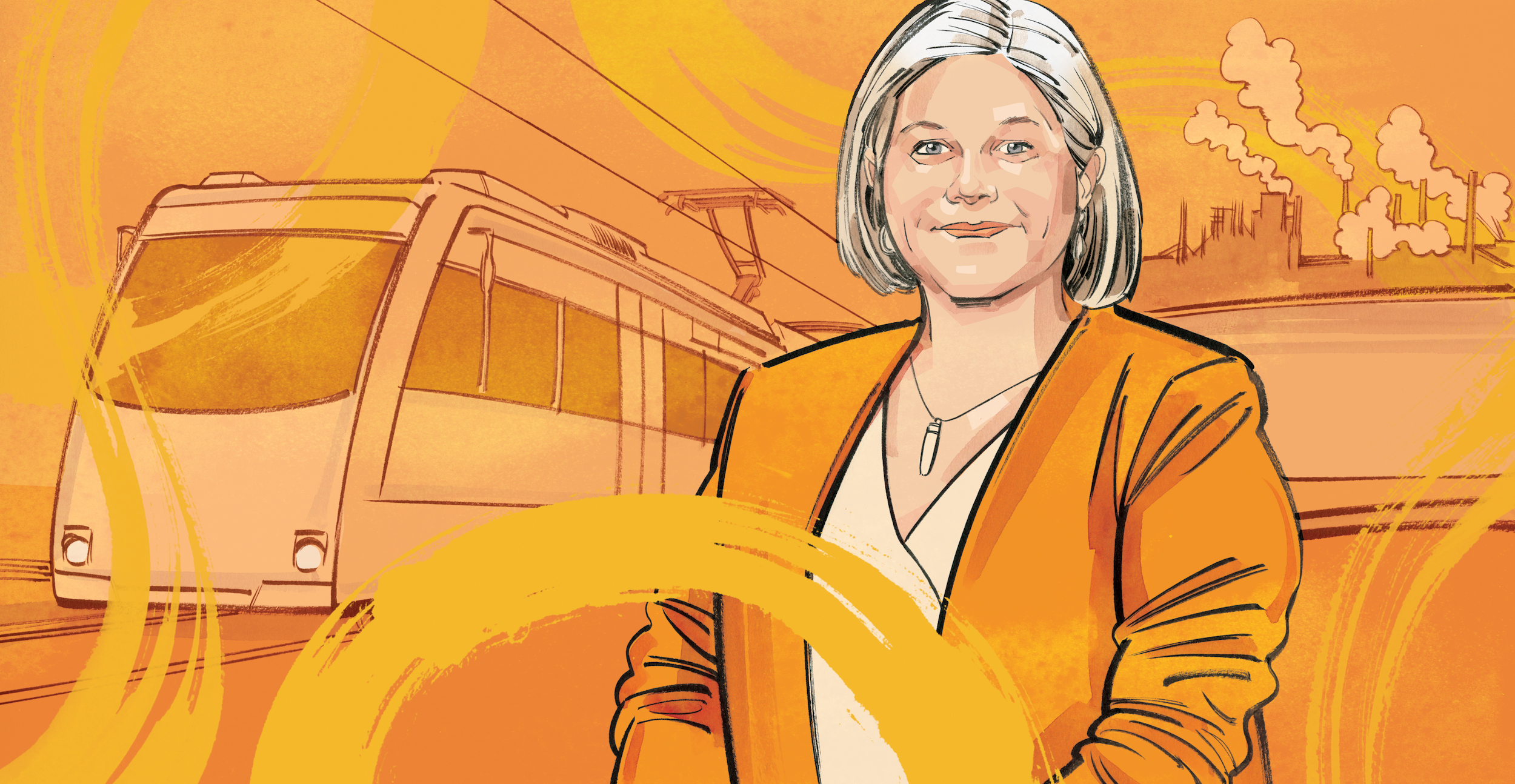
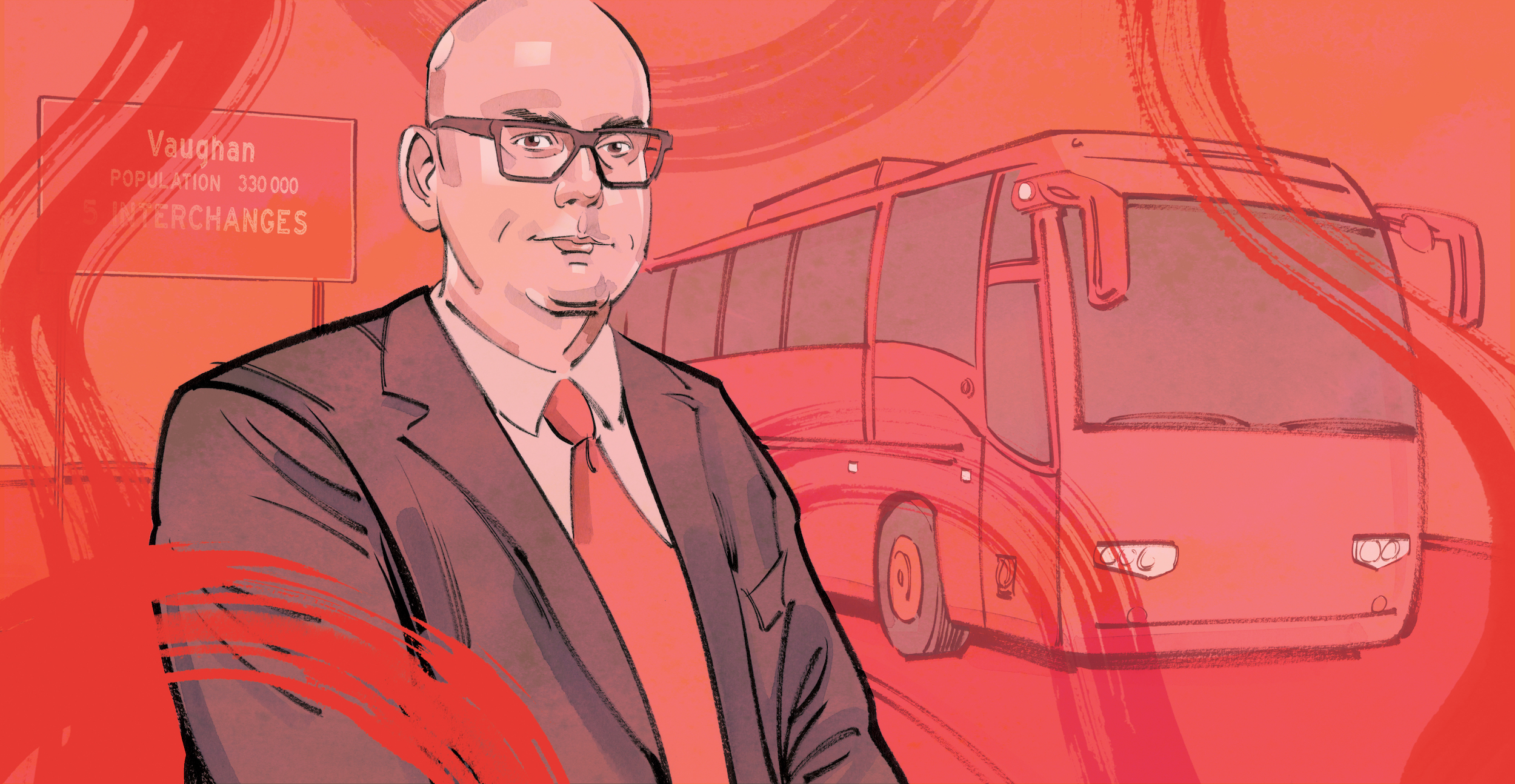
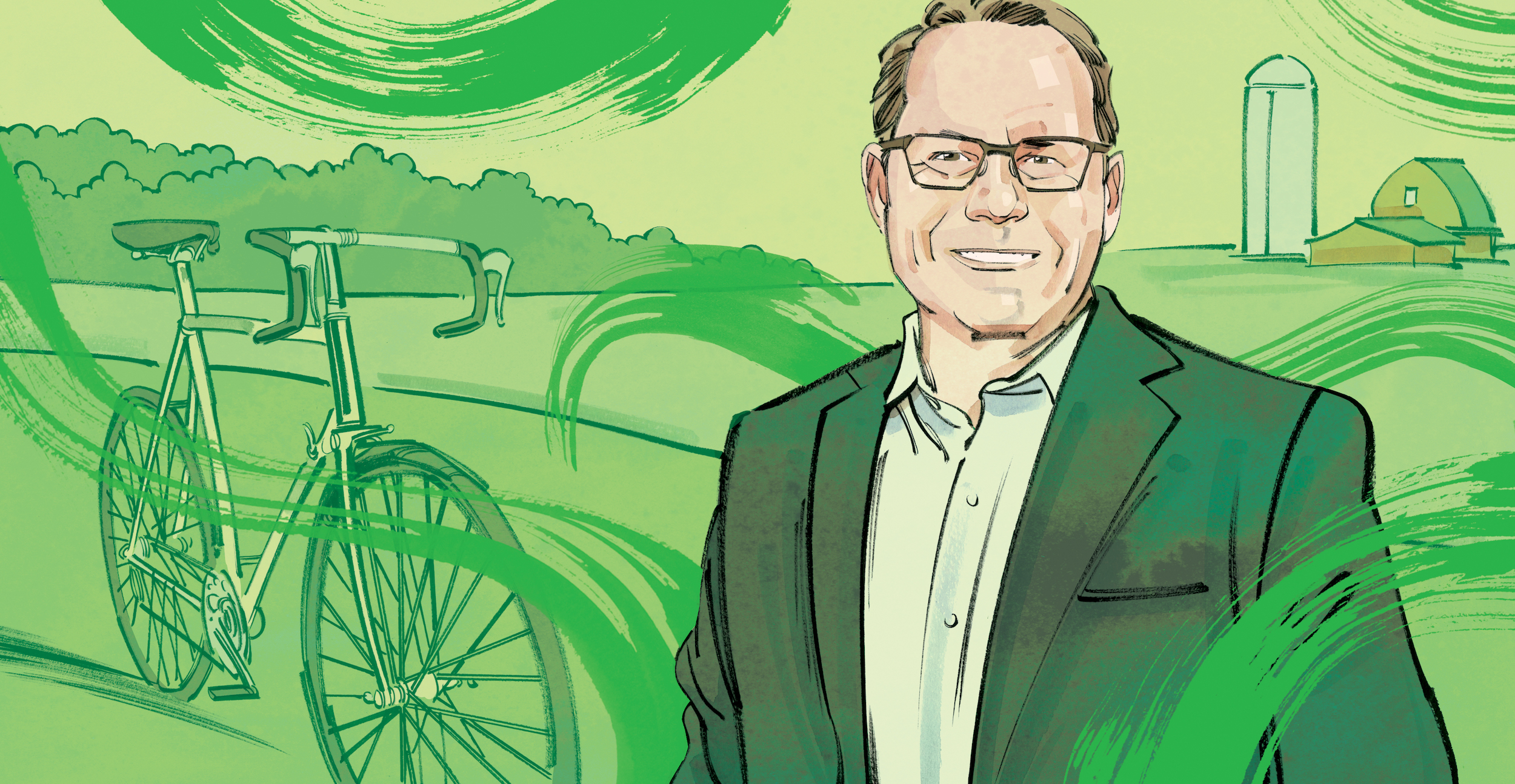
Neither of the two biggest opposition parties were able to topple Ford. Olive said it’s a real failure on the part of the NDP and the Liberals to sell a compelling and environmentally responsible vision of Ontario’s future.
“I think there’s a lot of fear among the opposition parties in Ontario that by going all in on a green agenda, they’re going to alienate a lot of voters, and that those aren’t going to be the issues that resonate with people,” she said.
“I don’t often hear them talking about a green transition or a green economy, or nature-based solutions.”
In some cases, voters have shown an appetite for environmental policy. Federally, Prime Minister Justin Trudeau’s Liberals have at least talked about environmental issues more than most of their provincial counterparts, and they’ve lasted three elections, Olive said. The Ontario Liberal party also managed to hold on to power while winding down coal plants in the early 2000s.
There might be any number of reasons why the Ontario Liberals and NDP chose a different approach this time around. But it probably didn’t help that the province is still recovering, in many ways, from two years and counting of the COVID-19 pandemic. For a while in 2020 and 2021, people were stuck at home and recognizing the importance of green spaces and environmental protection, but the public has generally moved on, Olive said. “[People] are just back to living their lives and being rather complacent, which is not necessarily a criticism, it’s what happens.”
The real surprise Thursday night came from the NDP. Though exact seat counts weren’t available by publication time, it appeared the New Democrats had won enough seats to clinch the title of Ontario’s official opposition for a second time. They did so despite a spate of attacks from the Liberals and polls showing they were in danger of falling to third place.
But that wasn’t enough for the embattled leader, who resigned tearfully on election night after four tries at the premier’s seat.
“The majority of Ontarians have not endorsed or supported the Conservative government,” Horwath told supporters in Hamilton, saying the Ford government would make the climate crisis worse. “Doug Ford needs to realize that… The majority of Ontarians did not vote for big highways to big houses that no one can afford.”
Already, Horwath and the NDP had been under fire for losing the support of some unions, mostly in the construction and building sector, to the Progressive Conservatives. But internally, as the Narwhal reported in April, some staffers have been frustrated with what they said was a focus on knee-jerk criticisms of Ford rather than truly connecting with voters.
With Horwath stepping down, the party’s future is uncertain. She has no obvious successor. And with a chaotic process ahead as the party tries to choose one, it’s unclear how effective the NDP can really be in pushing its agenda, which includes more climate action and environmental protection than the Progressive Conservatives.
The Liberals were even more shattered: leader Steven Del Duca resigned too Thursday night, despite saying in the days leading up to the election that he’d stay. And as results rolled in Thursday night, the Liberals fell short of the 12 seats needed to regain official party status in the legislature, which they lost in 2018. Del Duca himself failed to win his riding.
“As a party, I know we will re-double our efforts to build your trust,” said a deflated Del Duca.
The Ontario Green Party, meanwhile failed to increase its seat count Thursday. Leader Schreiner, who was widely praised on the campaign trail, comfortably re-secured his seat in Guelph, Ont. But that success didn’t translate into bigger gains.
In a heartbreaker for the party, Green candidate Matt Richter came within about 2,000 votes of a win in Parry Sound—Muskoka but lost to Progressive Conservative Graydon Smith. Though the Tories had held the riding since its creation in 1999, it had looked like Parry Sound—Muskoka might be ripe for a Green surge: incumbent MPP Norm Miller decided not to run again and the Liberals fired their candidate over a homophobic book he’d written.
Green deputy leader Dianne Saxe, however, failed to topple NDP incumbent Jessica Bell in the downtown Toronto riding of University—Rosedale. Saxe served as Ontario’s environmental commissioner before Ford axed her office in 2018 and, although she received a long list of endorsements, she had stiff competition in a riding where the Liberals are also competitive.
With files from Fatima Syed
Updated on June 2, 2022 at 11:00 p.m. ET: This story was updated to include more details about the election results and statements from the party leaders.
Get the inside scoop on The Narwhal’s environment and climate reporting by signing up for our free newsletter. On March 17, federal Conservative Leader Pierre Poilievre...
Continue reading
B.C. previously allowed mineral claims without First Nations consultation. It was court-ordered to fulfill its...

British Columbia has vowed to fast-track several mining projects in an effort to blunt the...

Alberta introduced North America’s first industrial carbon tax in 2007. Now an industry email obtained...
